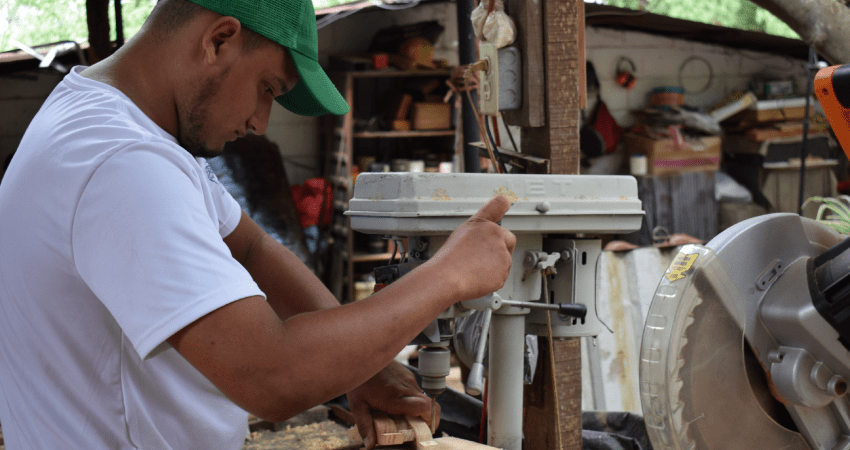IOM supports the proposal of special law on work permits in Honduras

Tegucigalpa, November 11, 2019.- The International Organization for Migration (IOM), with technical support from the International Labor Organization (ILO), is assisting the Secretariat of Labor and Social Security of the Republic of Honduras in the process of drafting a proposal for a Special Law on Labor Authorization for Foreign Nationals in Honduras, with the goal of facilitating the integration of migrants into the Honduran labor market.
The State of Honduras grants approximately 4,000 residence permits per year, of which around 70% are authorized to perform remunerated work. However, only around 500 work permits are processed each year.
During a workday with various governmental and non-governmental institutions, the process of constructing the proposal was explained, each article was shared, and the steps for bringing this new legal instrument for regulating migration to Honduras were detailed.
The objective is for the law to facilitate the creation of a national register of migrant workers, to establish labor authorization categories, and to improve the regularization of the processes and contract registration, involving both workers and employers. “The new law incorporates principles that align national policy with the international obligations of the State of Honduras regarding Labor Rights,” explained Sally Vallardes, specialist consultant on migration issues, who is providing support in the drafting of this new proposed law.
Additionally, there are no existing programs to facilitate the granting of residence permits to attract technical and professional workers with specific labor skills. This will also be addressed in the new law, in order to promote the incorporation of intra- and extra-regional migrants into the formal Honduran labor market, which will enable the exchange of knowledge and the increased professionalization of certain economic sectors, thus positively impacting the economy of the country.
“This process has been an exemplary case of inter-institutional cooperation in which interviews were conducted with key actors, a consultation workshop was organized with these same institutions and organizations, continual contact was maintained with homologous institutions in other countries in the region (Panama, Mexico, and Costa Rica) in order to understand their experiences, and a visit was made to the Ministry of Work and Labor Development of Panama. All of this was done in order to design an evidence-based proposal, grounded in international standards and norms on labor migration,” stated Jorge Peraza, Chief of Mission of IOM for El Salvador, Guatemala, and Honduras.
This effort was part of the support that IOM and ILO provide to the Inter-Institutional Round Table on Labor Migration, which was created in Honduras in 2016.
The process of proposing the law is taking place within the framework of the labor migration component of IOM’s Regional Migration Program: Mesoamerica-The Caribbean, financed by the Bureau of Population, Refugees, and Migration of the Department of State of the United States of America.